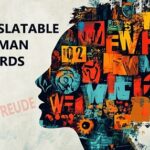
In Germany, few words carry as much emotional weight – or cultural complexity – as Heimat. Often translated as “homeland” or “hometown,” Heimat is more than geography. It evokes identity, belonging, tradition, memory, and comfort. It describes not just where you are from, but where your roots live.
Ask a German about their Heimat, and you’ll likely be met with a warm smile, a detailed story, or even a tear. In a country shaped by war, division, migration, and modernization, Heimat has become a word for everything that feels stable, personal, and authentic.
In this article, we explore the history, meaning, and emotional power of Heimat – and why it continues to shape German identity today.
What Is Heimat?
At its most basic, Heimat refers to the place where someone was born or grew up. But it is far more than that. It’s the sum of your early environment, your memories, dialect, food, local customs, landscape, and the people who shaped you.
Heimat is:
- The sound of the church bells in your village
- The smell of freshly baked Brötchen from your childhood bakery
- The way people greet each other in dialect
- The forests, fields, or city streets that shaped your imagination
- The traditions that come back every Christmas or harvest season
It’s not just where you’re from – it’s how that place lives inside you.
The Emotional Landscape of Heimat
For many Germans, Heimat represents safety, comfort, and identity. It’s what grounds you when the world changes. It’s what you miss when you’re abroad. And it’s what defines “home” even if you’ve lived elsewhere for decades.
Psychologists and sociologists describe Heimat as a place-bound version of emotional anchoring. It gives people a sense of continuity and coherence in their life story.
In recent decades, as people have moved more often, as families become more mobile, and as global cultures mix, the idea of Heimat has become even more emotionally charged. It’s no longer a given – it’s something people must choose, reclaim, or reinterpret.
A Word With a Complicated History
While Heimat today is mostly associated with positive feelings of belonging and identity, the word has not always been neutral.
During the Nazi era, the concept of Heimat was heavily politicized and weaponized. The regime used it to promote racial purity, exclusion, and nationalistic myth-making. Heimat became linked with blood-and-soil ideology (Blut und Boden), claiming that only certain people could “truly” belong to German land.
After 1945, many Germans were wary of the term. It took decades for Heimat to be emotionally rehabilitated. Today, it has returned to everyday language – but with far more nuance. It is now used more personally and locally, often stripped of nationalist overtones.
Related: Why Germans Love Rules (And What That Says About Their Culture)
Heimat vs. Zuhause
It’s important to distinguish between Heimat and Zuhause – two German words that both translate to “home” in English.
- Zuhause refers to your current place of living. It’s where you sleep, cook, and pay rent.
- Heimat refers to your origin – the place that formed your identity.
You might move to Berlin for work, but still say:
“Meine Heimat ist das Allgäu”
(“My homeland is the Allgäu region.”)
In other words, you can have many Zuhause, but usually only one Heimat.
Regionalism and Heimat Pride
Germany is a deeply regional country. Bavarians, Saxons, Swabians, and Rhinelanders often have stronger emotional ties to their Heimat than to Germany as a whole. Local dialects, foods, and customs reinforce these identities.
Examples of regional Heimat pride:
- Bavaria (Bayern): Known for its Alpine culture, Catholic traditions, and Oktoberfest. Many Bavarians identify as Bavarian first, German second.
- Saxony (Sachsen): Proud of its Baroque architecture, Protestant history, and dialect.
- The Ruhrgebiet: A former industrial powerhouse, known for its strong working-class identity and football loyalty.
This regionalism gives Heimat specificity. It’s not just a general “feeling of belonging” – it’s anchored in a particular culture, accent, landscape, and lifestyle.
Explore: Traditional German Clothing Explained
Heimat in German Arts and Media
The concept of Heimat has long been a theme in German literature, film, and music.
- Heimatfilme (1950s): Postwar films that idealized village life, mountain landscapes, and traditional family roles. They offered comfort during a time of national trauma.
- Edgar Reitz’s “Heimat” series (1984-2004): A monumental film project tracing German history through the lens of one family in the Hunsrück region.
- Modern pop and indie music: Many German artists now explore Heimat in ironic or critical ways – highlighting its beauty while questioning its limits.
Through these cultural forms, Heimat is constantly being redefined – by memory, history, politics, and emotion.
Migration and the Question of “New Heimat”
Germany is a country of immigration. Over 25% of the population has a migration background. So how does the concept of Heimat work for people who weren’t born in Germany – or were born in Germany but to immigrant parents?
Many migrants and their descendants speak of having multiple Heimat. One might say:
“Meine Heimat ist Istanbul, aber mein Zuhause ist Frankfurt.”
(“My homeland is Istanbul, but my home is Frankfurt.”)
Others actively create a new Heimat – through community, friendships, rituals, and local familiarity.
In recent years, there has been growing recognition in German media and politics that Heimat doesn’t have to be exclusive. It’s a feeling, not a bloodline. And anyone can build it.
Political Debates Over Heimat
Despite its emotional appeal, Heimat has also re-entered political discourse – sometimes contentiously.
- In 2018, Germany’s Interior Ministry was renamed the Federal Ministry of the Interior, Building and Homeland (Bundesministerium des Innern, für Bau und Heimat). Critics said the term was vague, old-fashioned, or potentially exclusionary.
- Others argued that reclaiming Heimat as a positive, inclusive concept is essential – especially in response to rising nationalism and alienation.
These debates reveal a key tension: Heimat is both deeply personal and potentially political. It can unite – but it can also divide if narrowly defined.
Heimat in a Globalized World
In an age of digital nomads, international mobility, and blended families, does Heimat still matter?
For Germans, the answer is yes – but not in a rigid way. Instead of being a fixed place, Heimat is increasingly seen as:
- A feeling of belonging
- A network of relationships
- A connection to values, language, or memory
Even Germans who live abroad for decades often say:
“Ich habe meine Heimat im Herzen.”
(“I carry my homeland in my heart.”)
Others build new versions of Heimat – through expat communities, cultural centers, or food.
The Power of Heimat in German Culture
Ultimately, the reason Germans feel so strongly about Heimat lies in its ability to hold contradictory meanings at once. It is:
- Both past and present
- Both location and emotion
- Both personal and political
- Both nostalgic and evolving
It connects people to landscape, history, family, and self. It’s where your story starts – and often where it continues, even if you’ve left.
Related: Why German Kids Carry a Giant Cone on Their First Day of School
In Germany, Heimat is never just about geography. It’s about who you are when you are surrounded by what makes you feel at home – whether that’s the dialect of your village, the scent of Apfelstrudel, or the rhythms of a local brass band.
It’s no wonder the word remains so central to the German emotional landscape. In a world that changes faster than ever, Heimat is the anchor that holds – quietly, but powerfully.
Related:
Bavarian vs. Prussian: Regional Rivalries and Cultural Identity







